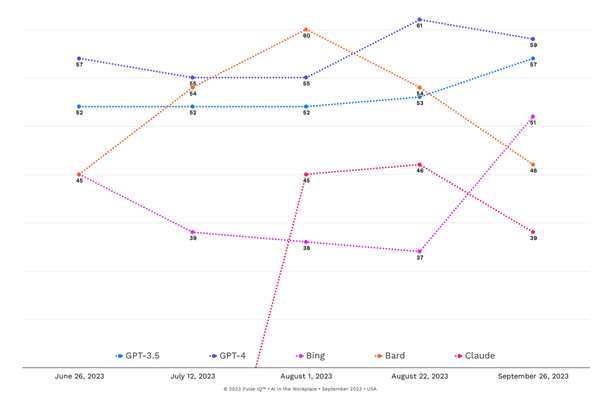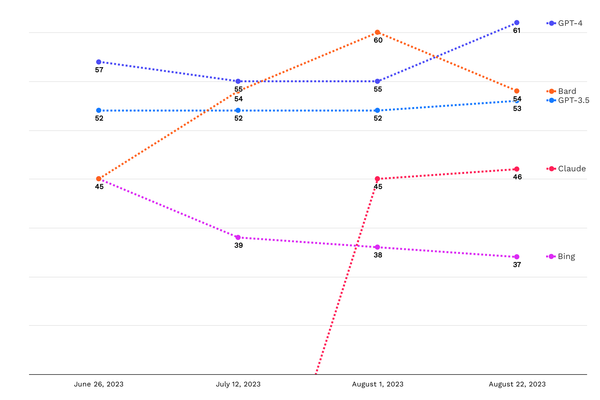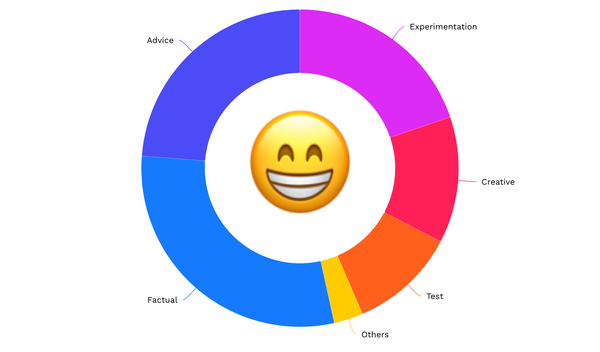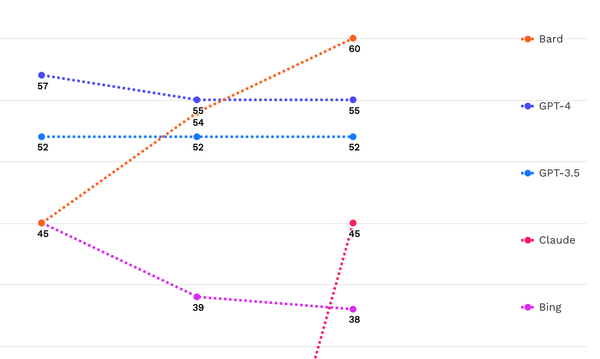Search is so dominant that it’s stunning to think it could be replaced by something else. But if you can only start in one place, where would you start?
We asked that question of 227 US consumers familiar with AI to see which they would use first in nine different topic areas. AI was first or tied in five of them.
AI platforms are seen as the best starting point for:
- Technology (60% AI)
- Travel/trip planning (59% AI)
- Learning and education (56% AI)
- Health and Wellness (52% AI – statistically a tie)
However, search is still the first stop when consumers want information on:
- Shopping (69% search)
- Food & beverage (61% search)
- Media, entertainment (57% search)
- Large purchase research (56% search)
A tie to watch: in the "Money, Finance, and Insurance" category, there was a tie (50% search preference, 50% AI).
Implications
- TWO FRONTS: Despite the rise of AI, search still has massive reach and is an ingrained behavior for billions of people. Companies also have a need to be found via search. But if you worked in Tech, Travel, or Learning, these results should give you reason to increase your focus on leveraging AI within your owned platforms and on how you can present within the leading AI platforms.
- WHAT WILL BE THE AI EQUIVALENT OF SEO: Given consumer interest in using AI as the first port of call on certain topics, it begs the question: how can companies in those industries optimize how their information appears in AI platforms? In search, SEO is a big business with many strategies, tactics, and support experts. It is still early, but one could envision an opportunity for something like SEO in AI that helps companies better index and attach their information to the engines behind AI responses.
- BEST OF BOTH: While a consumer can only go one place first, Bard and Bing are currently attempting to fuse search and AI, potentially offering the best of both worlds. Although they have less time on the market than GPT - and their UX is still a work-in-progress - they may have an advantage given their in-house search capabilities. What if Bing and Bard gave people a choice on how they wanted to interact, or could automatically discern how to present responses? Allowing users flexibility to choose between search and generative AI could increase user satisfaction and engagement.
The computational choice of presenting search or generative AI results could be based on the user's type of question and the writing style of the prompt. Either option could result in users spending more time in one platform, making the AI experience more of a one-stop-shop. Going the other direction, pure AI platforms could potentially pull search results via API and infuse them into their UX. The ability to combine search with generative AI will have huge implications, but if everyone has everything, the starting point for consumers may be the most important element: mindshare (what people think to use first).








Member discussion